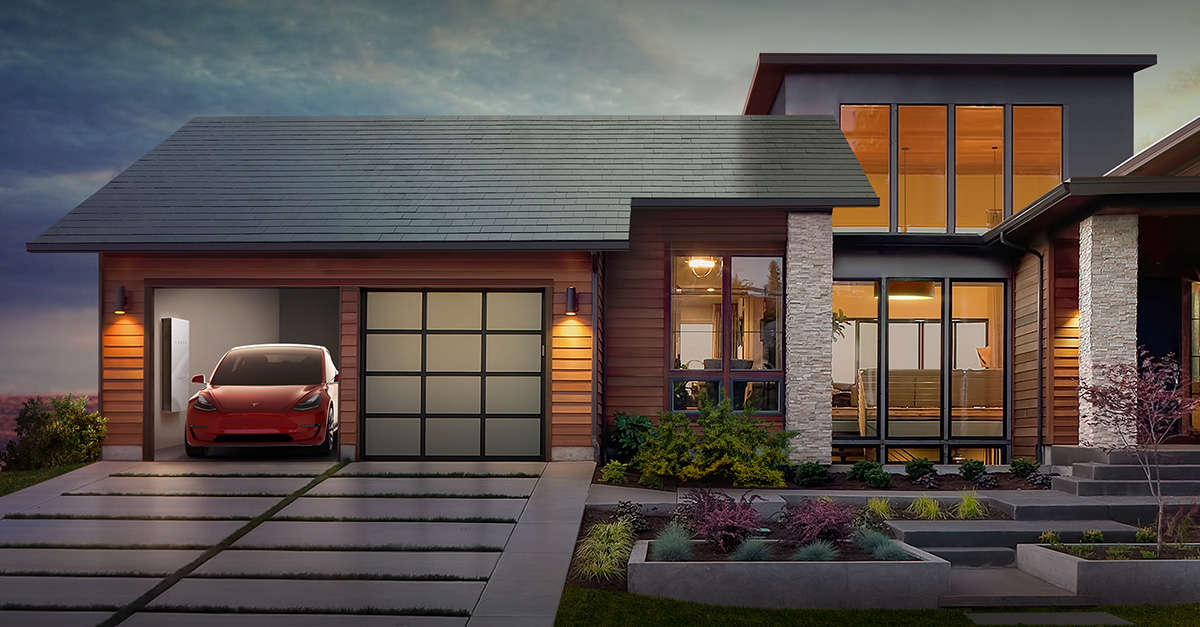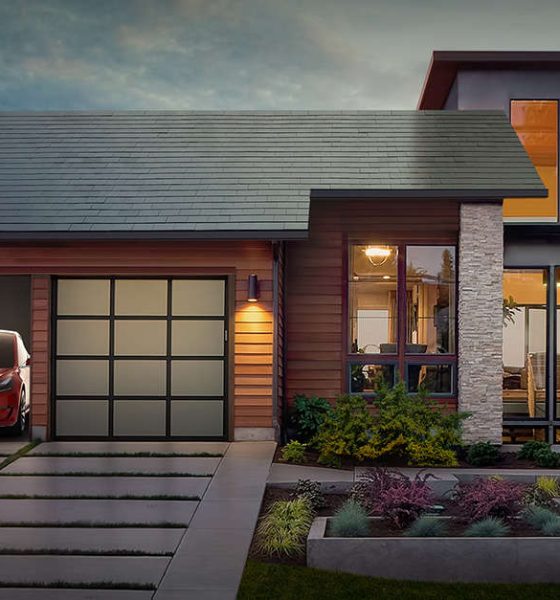A building permit filed by Tesla for its electric vehicle factory in Fremont, CA has shown that the electric car maker is looking to build a structure to evaluate its long-awaited Solar Roof tiles and their installation process. The structure’s permit was issued to Tesla in July.
The description of the project is straightforward. “Construction of a test structure to evaluate Tesla Solar Roof product and installation process. Fire Sprinklers, Fire Alarm, Truss Design, and Solar Designs are deferred submittals,” Tesla wrote.
The building permit, which was initially mentioned in a CNBC report, suggests that Tesla’s development of its Solar Roof tiles, which have seen notable delays since the product was initially unveiled in October 2016, is moving forward. It should be noted that Elon Musk has remained optimistic about the solar power-generating shingles despite these delays, noting during the Model Y unveiling that 2019 will be the “Year of the Solar Roof and Powerwall.”
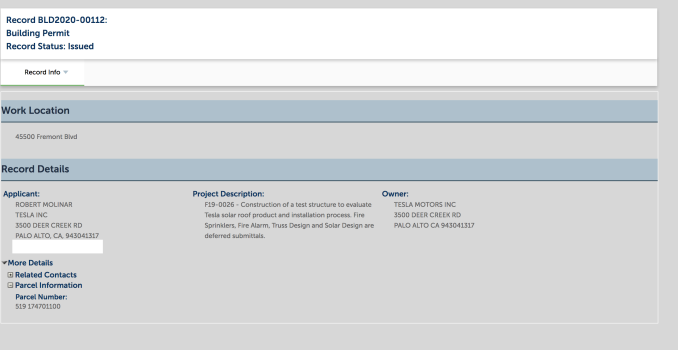
The delays in the Solar Roof’s rollout have weighed down the company’s energy business. As noted by Tesla in its Q2 Update Letter, the under-utilization of the solar shingles have proven detrimental to the company’s margins for the quarter. “Higher costs from temporary manufacturing under-utilization of our Solar Roof ramp have further contributed to a decrease in margins,” Tesla wrote.
For Tesla to properly ramp the Solar Roof, the company would have to increase the production of the shingles in Gigafactory 2, the company’s plant in Buffalo, NY. So far, Gigafactory 2’s operations have remained conservative, though the electric car maker’s first annual report to New York’s Empire State Development Corp. back in May has revealed that it had exceeded its 2019 jobs target for the state.
Tesla’s filings stated that the company had 632 full-time workers through the end of April, comprised of 329 employees at Gigafactory 2 in Buffalo and around 300 more across New York. The number exceeded the state’s requirement of having at least 500 employees in the state by April 30, 2019, though it is still notably far from next year’s target, which requires Tesla to employ 1,460 workers in the state, including at least 500 at Gigafactory 2. If Tesla will indeed ramp the production of the Solar Roof this year, the company would likely start hiring more employees for the facility in the near future.
Elon Musk, for his part, has remained hopeful for the Solar Roof tiles and their eventual release. In a recent update on Twitter, Musk noted that he hopes to ramp Solar Roof production to a rate of about ~1,000 per week by the end of 2019. The update promptly incited furor from the company’s skeptics, with some critics alleging that the tweet violated Musk’s updated settlement terms with the Securities and Exchange Commission that took effect last April. Despite these strong reactions, the SEC’s press office has so far declined to comment if Musk’s Twitter update violated the CEO’s settlement with the agency.

Energy
Tesla Powerwall distribution expands in Australia
Inventory is expected to arrive in late February and official sales are expected to start mid-March 2026.
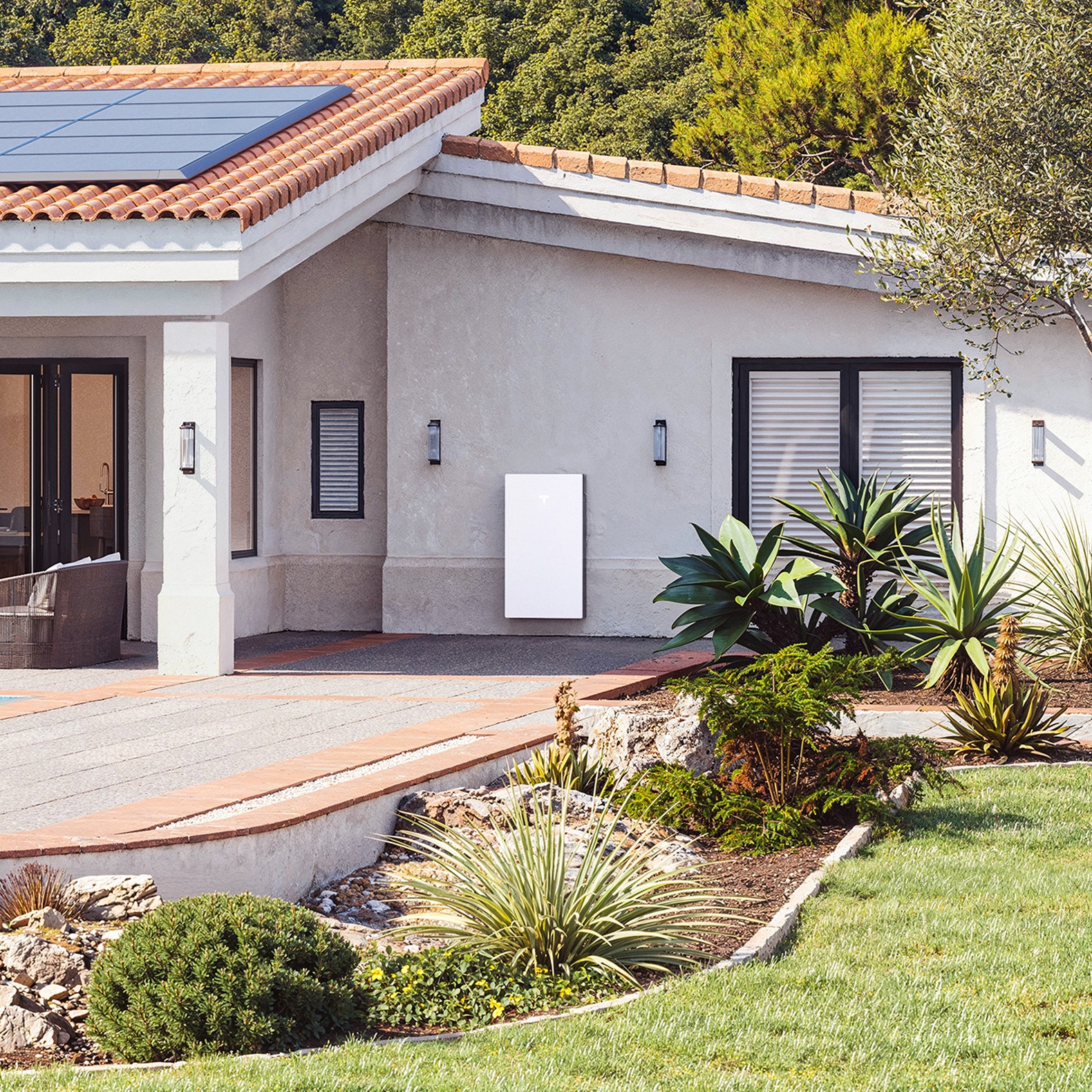
Supply Partners Group has secured a distribution agreement for the Tesla Powerwall in Australia, with inventory expected to arrive in late February and official sales beginning in mid-March 2026.
Under the new agreement, Supply Partners will distribute Tesla Powerwall units and related accessories across its national footprint, as noted in an ecogeneration report. The company said the addition strengthens its position as a distributor focused on premium, established brands.
“We are proud to officially welcome Tesla Powerwall into the Supply Partners portfolio,” Lliam Ricketts, Co-Founder and Director of Innovation at Supply Partners Group, stated.
“Tesla sets a high bar, and we’ve worked hard to earn the opportunity to represent a brand that customers actively ask for. This partnership reflects the strength of our logistics, technical services and customer experience, and it’s a win for installers who want premium options they can trust.”
Supply Partners noted that initial Tesla Powerwall stock will be warehoused locally before full commercial rollout in March. The distributor stated that the timing aligns with renewed growth momentum for the Powerwall, supported by competitive installer pricing, consumer rebates, and continued product and software updates.
“Powerwall is already a category-defining product, and what’s ahead makes it even more compelling,” Ricketts stated. “As pricing sharpens and capability expands, we see a clear runway for installers to confidently spec Powerwall for premium residential installs, backed by Supply Partners’ national distribution footprint and service model.”
Supply Partners noted that a joint go-to-market launch is planned, including Tesla-led training for its sales and technical teams to support installers during the home battery system’s domestic rollout.
Energy
Tesla Megapack Megafactory in Texas advances with major property sale
Stream Realty Partners announced the sale of Buildings 9 and 10 at the Empire West industrial park, which total 1,655,523 square feet.
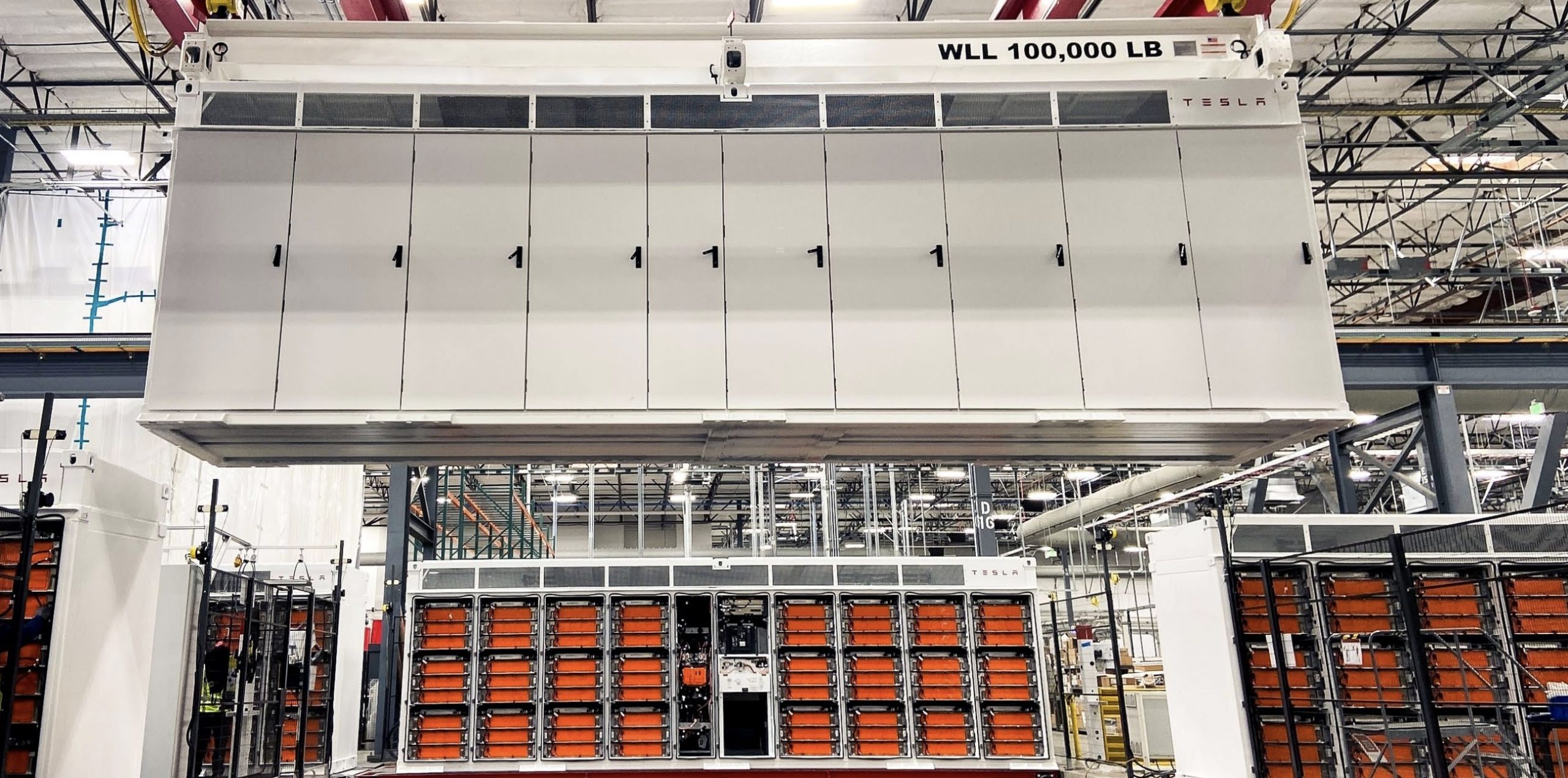
Tesla’s planned Megapack factory in Brookshire, Texas has taken a significant step forward, as two massive industrial buildings fully leased to the company were sold to an institutional investor.
In a press release, Stream Realty Partners announced the sale of Buildings 9 and 10 at the Empire West industrial park, which total 1,655,523 square feet. The properties are 100% leased to Tesla under a long-term agreement and were acquired by BGO on behalf of an institutional investor.
The two facilities, located at 100 Empire Boulevard in Brookshire, Texas, will serve as Tesla’s new Megafactory dedicated to manufacturing Megapack battery systems.
According to local filings previously reported, Tesla plans to invest nearly $200 million into the site. The investment includes approximately $44 million in facility upgrades such as electrical, utility, and HVAC improvements, along with roughly $150 million in manufacturing equipment.
Building 9, spanning roughly 1 million square feet, will function as the primary manufacturing floor where Megapacks are assembled. Building 10, covering approximately 600,000 square feet, will be dedicated to warehousing and logistics operations, supporting storage and distribution of completed battery systems.
Waller County Commissioners have approved a 10-year tax abatement agreement with Tesla, offering up to a 60% property-tax reduction if the company meets hiring and investment targets. Tesla has committed to employing at least 375 people by the end of 2026, increasing to 1,500 by the end of 2028, as noted in an Austin County News Online report.
The Brookshire Megafactory will complement Tesla’s Lathrop Megafactory in California and expand U.S. production capacity for the utility-scale energy storage unit. Megapacks are designed to support grid stabilization and renewable-energy integration, a segment that has become one of Tesla’s fastest-growing businesses.
Energy
Tesla meets Giga New York’s Buffalo job target amid political pressures
Giga New York reported more than 3,460 statewide jobs at the end of 2025, meeting the benchmark tied to its dollar-a-year lease.
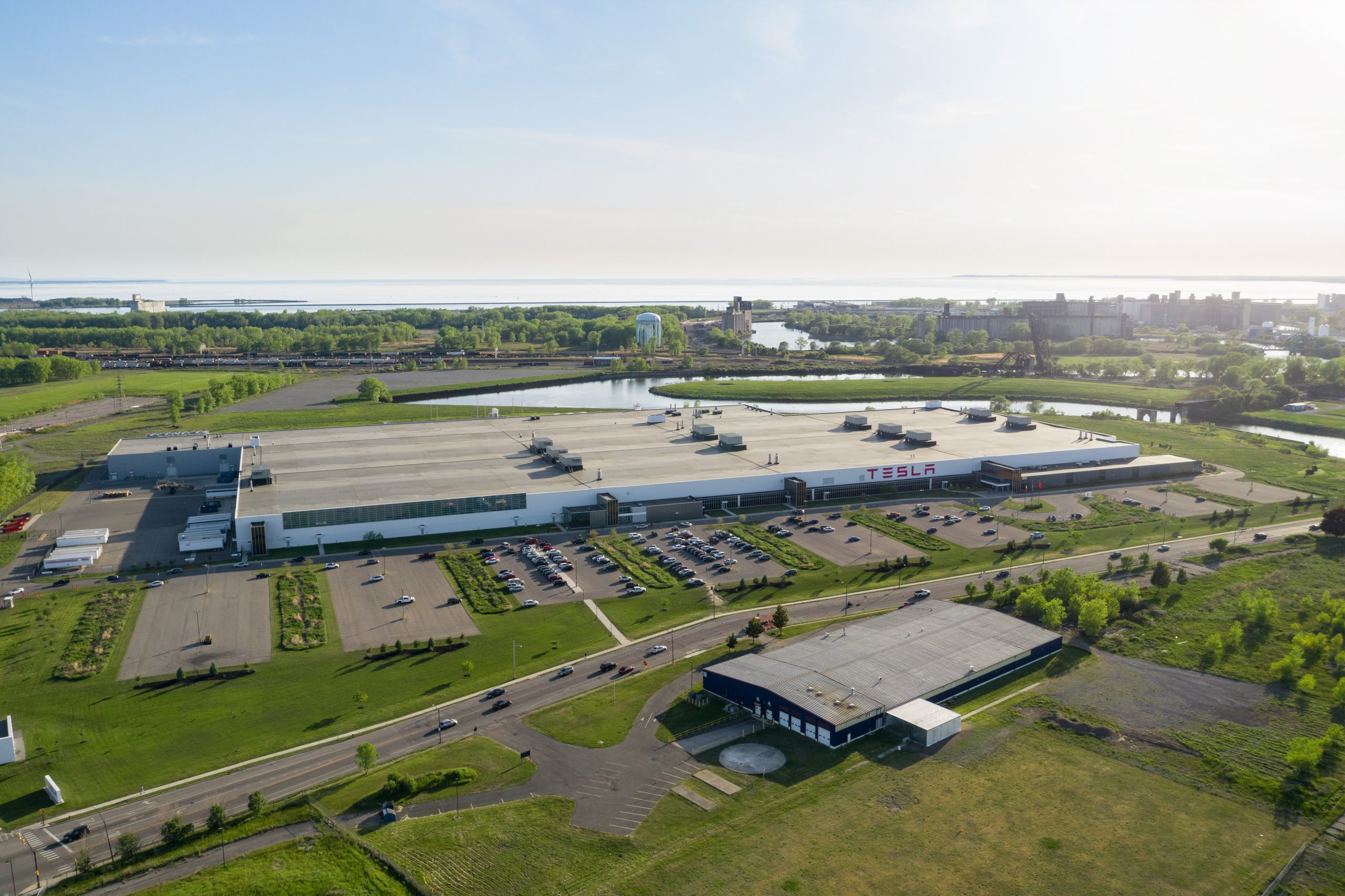
Tesla has surpassed its job commitments at Giga New York in Buffalo, easing pressure from lawmakers who threatened the company with fines, subsidy clawbacks, and dealership license revocations last year.
The company reported more than 3,460 statewide jobs at the end of 2025, meeting the benchmark tied to its dollar-a-year lease at the state-built facility.
As per an employment report reviewed by local media, Tesla employed 2,399 full-time workers at Gigafactory New York and 1,060 additional employees across the state at the end of 2025. Part-time roles pushed the total headcount of Tesla’s New York staff above the 3,460-job target.
The gains stemmed in part from a new Long Island service center, a Buffalo warehouse, and additional showrooms in White Plains and Staten Island. Tesla also said it has invested $350 million in supercomputing infrastructure at the site and has begun manufacturing solar panels.
Empire State Development CEO Hope Knight said the agency was “very happy” with Giga New York’s progress, as noted in a WXXI report. The current lease runs through 2029, and negotiations over updated terms have included potential adjustments to job requirements and future rent payments.
Some lawmakers remain skeptical, however. Assemblymember Pat Burke questioned whether the reported job figures have been fully verified. State Sen. Patricia Fahy has also continued to sponsor legislation that would revoke Tesla’s company-owned dealership licenses in New York. John Kaehny of Reinvent Albany has argued that the project has not delivered the manufacturing impact originally promised as well.
Knight, for her part, maintained that Empire State Development has been making the best of a difficult situation.
“(Empire State Development) has tried to make the best of a very difficult situation. There hasn’t been another use that has come forward that would replace this one, and so to the extent that we’re in this place, the fact that 2,000 families at (Giga New York) are being supported through the activity of this employer. It’s the best that we can have happen,” the CEO noted.
